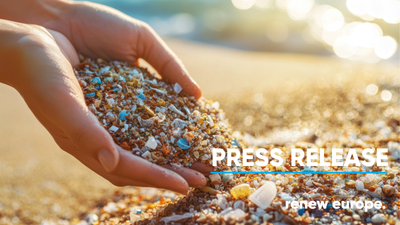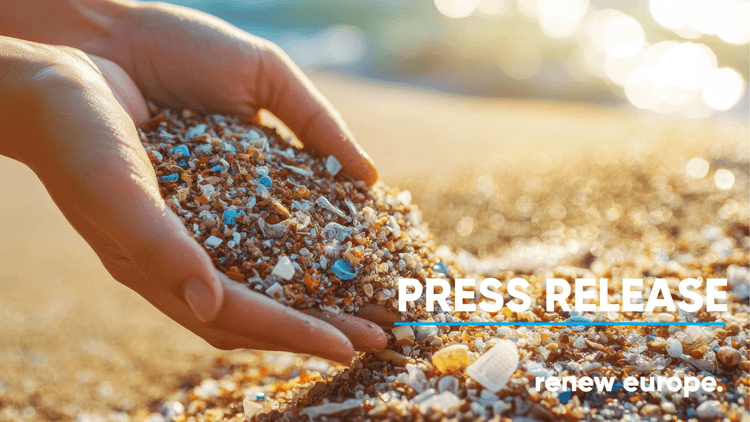The European Parliament and Council have reached a provisional trilogue agreement on the EU Regulation to prevent plastic pellet losses, a crucial step towards reducing microplastic pollution across Europe and protecting our environment. This new regulation establishes clear obligations for those handling plastic pellets to tackle losses and spills at all stages of the supply chain, on land and by sea. The new rules will apply to all economic operators handling more than five tonnes of plastic pellets annually, including those cleaning pellet containers, shippers, and maritime transport operators—marking the first time the maritime sector will be subject to such obligations in line with International Maritime Organisation (IMO) guidelines.
Lead negotiator for Renew Europe, MEP Karin Karlsbro (Liberalerna/ Sweden), welcomed the provisional agreement:
“This agreement is a strong signal that the environment remains an area where the European Parliament can legislate meaningfully and deliver real results, while protecting European competitiveness. For me, the most important priority was to ensure that the maximum amount of plastic pellets in the supply chain is covered—addressing the problem of the pollution itself. With the support of Renew, maritime transport is included in the scope - ensuring that there are no gaps in the environmental protection afforded. That is how we achieve impact and environmental safeguards where it matters most.”
The regulation introduces a range of measures including mandatory Risk Management Plans, and immediate reporting requirements following accidents or losses. Operators will be required to notify authorities regarding the scale of their activities and ensure proper packaging, handling, and clean-up procedures.
In line with balancing simplification objectives with environmental protection, smaller operators handling over 1500 tonnes of plastic pellets annually have been granted flexibilities and lighter obligations, such as a once-off certification. Micro-entities and companies with less than 1500 tonnes annual will only need to issue a self-declaration of conformity, ensuring both workability and robust environmental standards. In an additional flexibility, operators covered under permitting provisions or existing environmental management schemes such as EMAS may also benefit from exemptions to reduce duplication.
To ensure a level-playing field between EU carriers and non-EU carriers, delivering on transparency and the objectives of the legislation, non-EU carriers will have to appoint an authorised representative in the EU to ensure accountability.
Notably, the agreement also includes a Parliament-backed provision requiring warning labels and pictograms on packaging to highlight the environmental harm caused by lost plastic pellets.
MEP Karin Karlsbro added:
“With this deal, the EU is setting a new global standard in the fight against microplastic pollution. We are making sure that every actor in the plastic pellet supply chain takes responsibility, with clear obligations to prevent unnecessary environmental damage. This is about ensuring that what is technically avoidable also becomes legally preventable.”
Renew Europe Coordinator on the Environment Committee, Pascal Canfin (Renaissance/France), said:
"I welcome the agreement reached last night on microplastics. For the first time, the European Union is equipping itself with rules to prevent and manage environmental disasters related to micro plastics on land and at sea, thanks to the extension of the scope to maritime transport. This agreement ensures a level playing field for European companies, as non-EU companies will also have to comply with this regulation." | 




